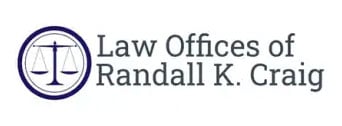MARCH 2015
CURRENT ISSUES IN THE AREAS OF ESTATE, TAX
AND PERSONAL AND BUSINESS PLANNING
The information that follows summarizes some of the current issues in the areas of estate, tax and personal and business planning which may be of interest to you. Although this information is accurate and authoritative, it is general in nature and not intended to constitute specific professional advice. For professional advice or more specific information, please contact my office.
Boomer Boot Camp At SWIRCA & More. Southwestern Indiana Regional Council on Aging (“SWIRCA & More”) will be sponsoring a “Boomer Boot Camp” in April. This series of programs will address elder law issues, financial planning, end-of-life planning, and insurance issues (Medicare, Medicaid, and more). I will be addressing the elder law session on April 8, 2015, from 6:00 p.m. to 8:30 p.m. The other sessions will be held on April 15, April 22, and April 29, each session being from 6:00 p.m. to 8:30 p.m. There will be a limited number of registrants accepted. If you are interested in registering for the program, contact Michael Halling at SWIRCA & More (16 West Virginia Street, Post Office Box 3938, Evansville, Indiana 47737-3938, telephone 812/464-7800, email: [email protected]).
Proposed Changes To VA Pension Rules. The VA Aid & Attendance (A&A) program is a supplemental pension program that is very useful to veterans and their surviving spouses who need significant assistance in the home or who are living in an assisted living environment. The A&A rules are significantly different than the Medicaid rules. Currently, transfers of resources will not necessarily disqualify a veteran or a surviving spouse from A&A benefits. However, on January 23, 2015, the VA published a proposed rule which is extremely comprehensive and which will address various net worth issues, asset transfers, and income exclusions for needs-based VA benefits. The proposed rule would impose a limit on net worth equal to the maximum community spouse resource allowance for Medicaid purposes, which would increase each year based on the cost of living. There are special rules proposed for calculating the assets that would be taken into account in determining the veteran’s net worth. New transfer rules and penalty periods are imposed for certain “covered assets” that are transferred. The rules are extremely complex and will significantly impact a veteran’s or the veteran’s surviving spouse’s eligibility for needs-based benefits. Federal Register RIN2900-AO73 may be consulted for additional information. There will, at least, be more certainty regarding the resource value that will be allowed for the purpose of obtaining eligibility for the A&A benefit, since the rules currently are nebulous and in many cases unquantifiable.
End Of Life Decision Making. An interesting article appeared in the New York Times on January 19, 2015, which can be accessed at http://www.nytimes.com/2015/01/20/ health/complexities-of-choosing-an-end-game-for-dementia.html. The issue concerns voluntarily refusing food and water when a person decides that continuing to receive nutrition and hydration is no longer desired and cannot be justified by the person’s declining physical and mental condition. The article uses the acronym “VSED,” short for “voluntarily stopping eating and drinking.” An individual clearly has the legal right to voluntarily stop eating and drinking, but the question then becomes whether the person’s expressed pronouncements in health care advance directives would be enforced. Of paramount importance in such cases is the declarant making his or her wishes absolutely known and receiving support from his family and from his health care providers. This issue is not the same as euthanasia or assisted suicide, but rather, it is the voluntary decision to quit sustaining life by administering a treatment (i.e., nutrition and hydration), which will prolong life when doing so is inappropriate in the mind of the declarant who has decided to cease the ingestion of food and water. When dealing with dementia, obviously the decision must be made when the person still has the cognitive ability to formulate and articulate such decisions. It should also be understood that using the word “starvation” is inappropriate in the context of VSED, since it engenders a horrific process that is simply inaccurate. There are articles on my web site addressing certain issues pertaining to the cessation of artificial nutrition and hydration, and I recommend that readers educate themselves about the process. The physiological effects of VSED are such that it is in fact not a painful or uncomfortable process at all, and in fact in many instances will be vastly preferable to the agony of prolonging the unalterable dying process.
Retirement Benefit Alternatives. The use and implementation of retirement benefits in the context of an estate plan must be given specific consideration and creative ideas should often be considered. Suppose that a husband has established a trust for the benefit of his wife and his children, with perhaps the wife receiving the income or needed portions of it while she is living, and perhaps she also has limited access to principal. The balance in the trust would then be distributed to the children at the time of the wife’s death. This is a common estate planning scenario. However, if the husband has a significant IRA or retirement benefits, designating the trust as the beneficiary can create various tax complications. A creative alternative might be to designate the wife as the beneficiary of a portion of the retirement arrangement, and the children as the beneficiary of the balance, so that each will have the full access to and control over their respective shares of the retirement arrangement without the interposition of a trust. The spouse can take advantage of the spousal rollover and the children can avail themselves of the “stretch” opportunity available by means of the life expectancy pay-out option, and it is conceivable that everyone will receive substantially more than by running the retirement arrangement proceeds through the vehicle of a trust.
Additional Information. Future issues of this Newsletter will address other issues of current interest. Please contact my office with any questions that you might have.

